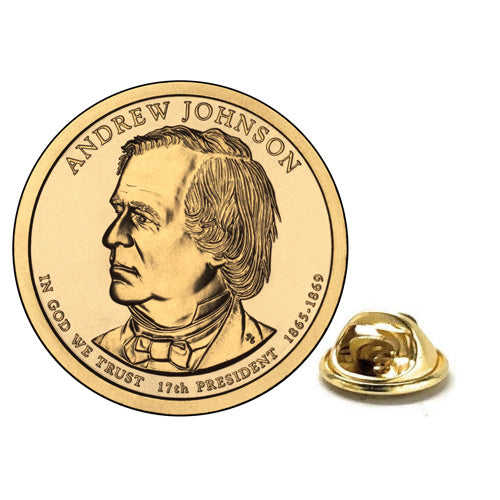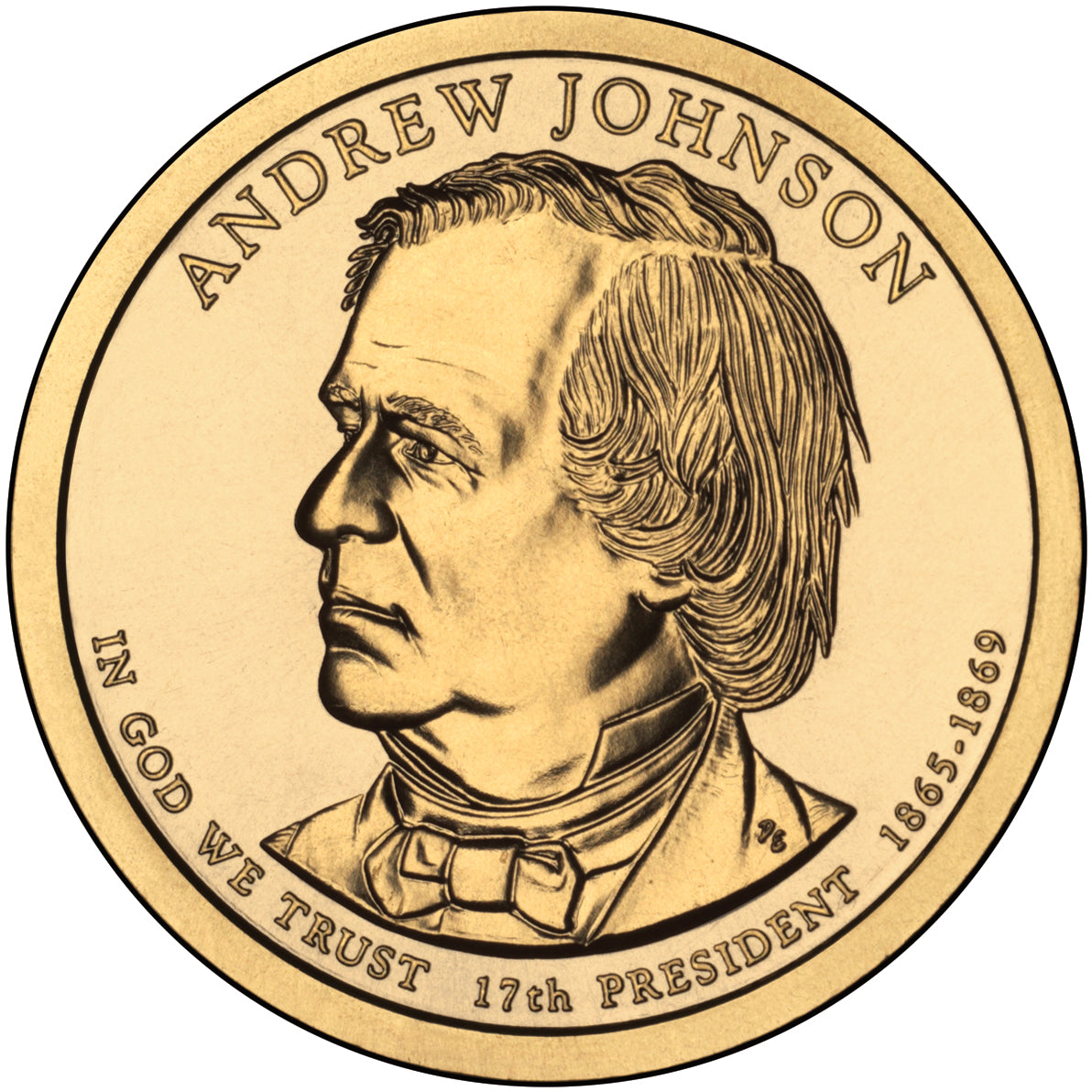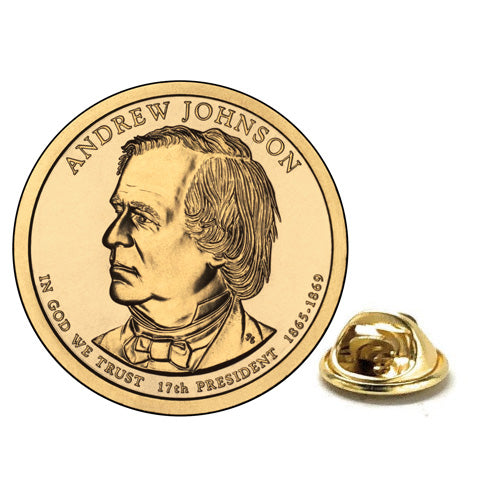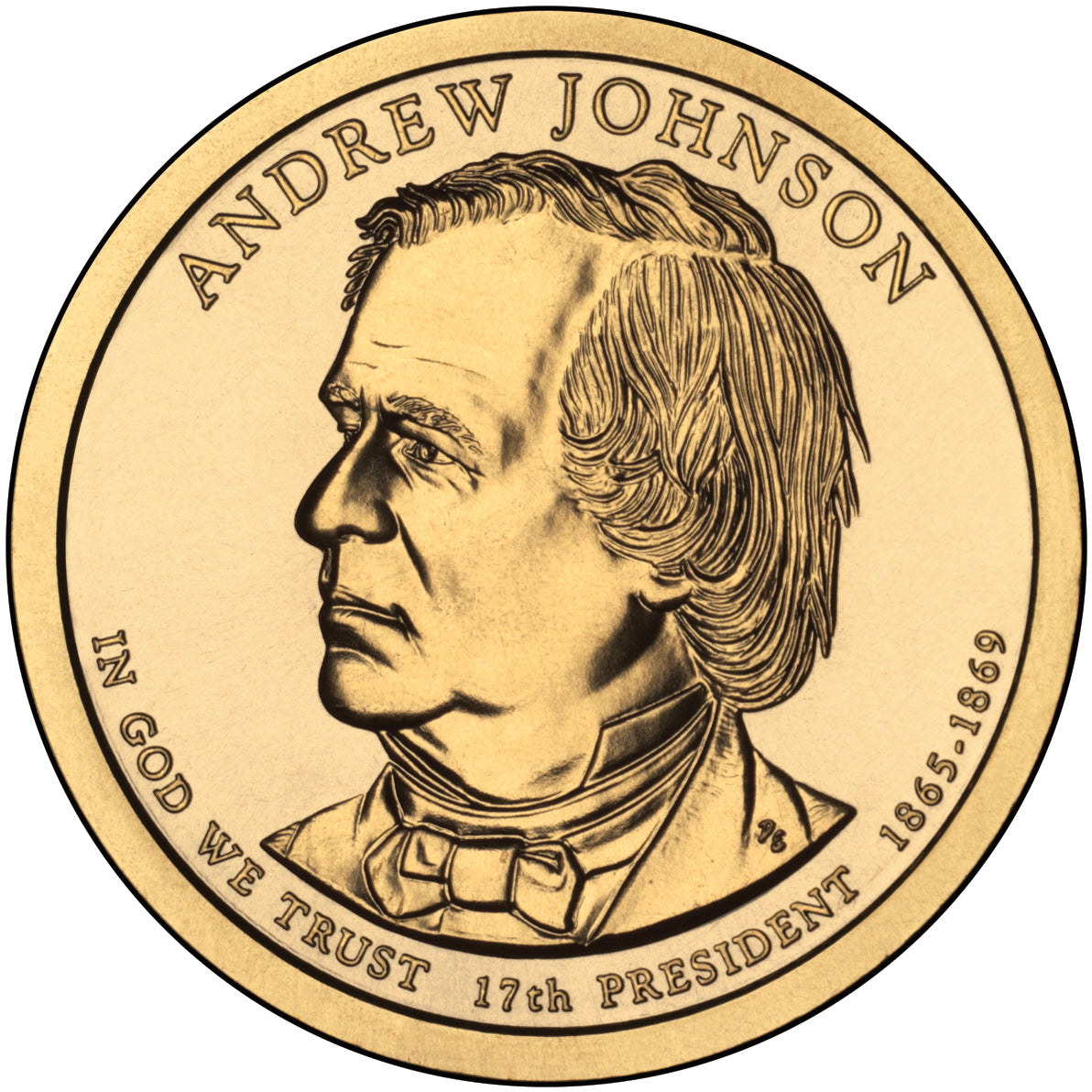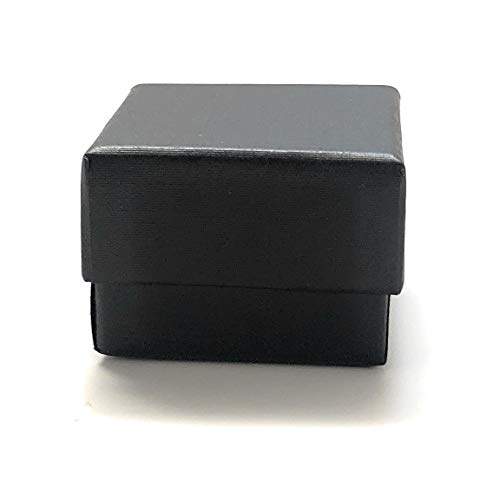Jay Pins
Andrew Johnson Presidential Dollar Lapel Pin, Uncirculated One Gold Dollar Coin Enamel Pin
Andrew Johnson Presidential Dollar Lapel Pin, Uncirculated One Gold Dollar Coin Enamel Pin
Couldn't load pickup availability
Honor the legacy of America’s 17th President with this Andrew Johnson Presidential Dollar Lapel Pin, crafted from an uncirculated U.S. $1 Presidential coin. This historical accessory features the detailed portrait of President Johnson, making it the perfect collectible for history lovers, coin enthusiasts, political memorabilia collectors, and patriots alike.
Set in a durable enamel pin backing, this piece can be proudly worn on jackets, hats, backpacks, or displayed in a collection. Whether you’re a history buff or seeking a unique gift, this lapel pin is a timeless keepsake that preserves a piece of American heritage.
✔ Genuine Uncirculated U.S. Presidential Dollar Coin
✔ Features Andrew Johnson (17th U.S. President, 1865–1869)
✔ High-quality enamel pin backing for secure wear
✔ Perfect gift for history lovers, coin collectors, and patriots
Add this Andrew Johnson coin lapel pin to your collection today and carry history with you wherever you go.
Approximately .80" in diameter
Authentic Uncirculated USA Coins
Hand Crafted by Artisan in the USA
Rhodium Plated Gold Butterfly Clasp Backing
Presidential $1 Coin Program
Born in Raleigh, North Carolina, in 1808, Andrew Johnson grew up in poverty. He was apprenticed to a tailor as a boy and later opened a tailor shop in Greeneville, Tenn., married Eliza McCardle and participated in debates at the local academy. Entering politics, he became an adept stump speaker, championing the common man and vilifying the plantation aristocracy. As a member of the U.S. House of Representatives and Senate in the 1840s and 1850s, he advocated a homestead bill to provide a free farm for poor men. In 1864, the Republican Party nominated Johnson, a Democrat, for vice president.
After President Abraham Lincoln’s death, President Johnson proceeded with a moderate approach to reconstruct the southern states. Radical Republicans in Congress, however, had their own plans and again placed southern states under military rule. They passed laws placing restrictions upon the President. When Johnson allegedly violated the Tenure of Office Act by dismissing Secretary of War Edwin M. Stanton, the House of Representatives voted 11 articles of impeachment against him. He was tried by the Senate in the spring of 1868 and acquitted by one vote. While he was President, the U.S. acquired the Alaska territory and Midway Islands in the Pacific. After leaving the presidency, Johnson went back to Tennessee, remaining politically active. In 1874, Tennessee returned Johnson to the Senate, making him the only former President to have served in the Senate. He died a few months later on July 31, 1875.
Share
